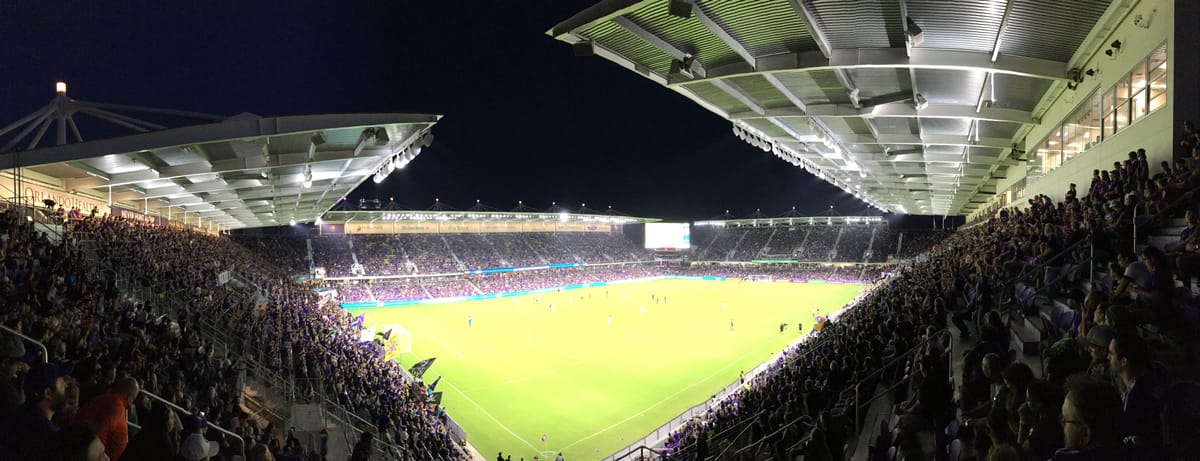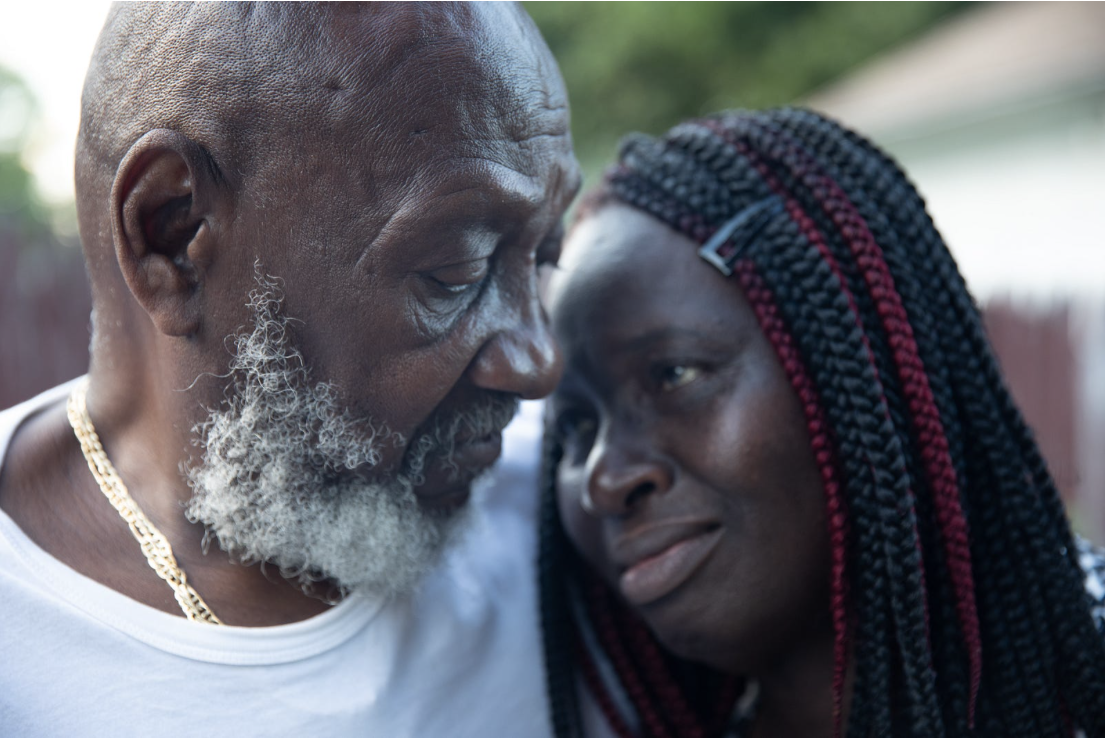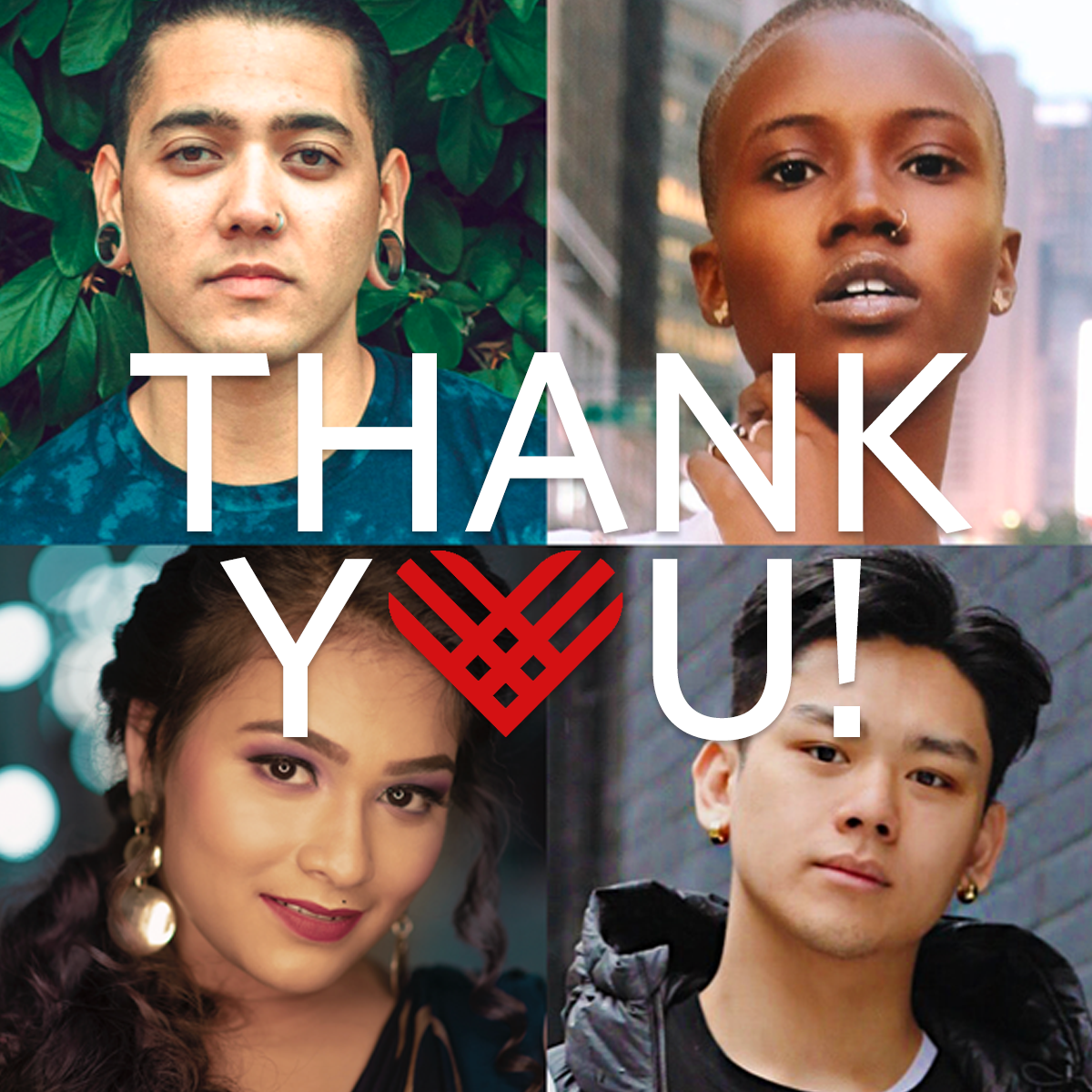|
OHF Weekly, Vol. 5 No. 41: Editor’s Letter, “Will Peace Ever Overcome Hate?,” “Exploring the Impact of Artificial Intelligence on Social Justice,” and a quote by Samella Harris. Editor’s Letter💛 Hey Reader, On any given day in America, thousands attend sporting events and concerts at sparkling state-of-the-art venues in low-income neighborhoods. It’s easy for people to survey the rundown surroundings with disdain and think, “Those people don’t care about themselves,” or “They’re so lazy,” or “Why don’t they do better?” Worse yet, the tendency is to assume that this is just the way things are or the way they’re supposed to be. That line of thinking omits several key factors that warrant examination: What existed in the space before today’s Coliseums, and why are the surrounding areas always in disrepair? Poverty by DesignAmerican history is replete with examples of Black, Indigenous, and People of Color being routinely relegated to areas thought undesirable by white residents. (That's a nice way of saying herded like cattle into segregated ghettos.) People in these neighborhoods form a sense of pride in their communities due to shared cultural values, life experiences, and having space that is free of oppression.  Vibrant neighborhoods rooted in deep civic pride develop, despite minimal municipal support or resources, most notably Harlem and Tulsa’s Greenwood District. While communities of color starve for municipal support, local governments pour disproportionate amounts of public dollars into public infrastructure for white communities. Often, the once vibrant communities of color are left to languish into disrepair over decades because . . . you know . . . Black communities are regarded by some in power as unimportant or expendable. And the people who live there are thought of as less than human. So it all works out anyway. Right? For starters, google Interstate 4 and Paramore, and North Florida Extension and Royal, Florida. A Tale of DisparityLet me know if you can spot the racism. In one class of neighborhoods across Orlando, work crews pave the roads with such care that a diamond cutter could carve up one of his finest gemstones on the back of a donkey without worrying about hitting a bump. Ever. The lines marking the lanes of traffic are shockingly crisp and precise, and the vistas are so stunning one would swear they were knock-offs of famed Paris city planner Georges-Eugène Haussmann. I know you think I’m exaggerating, and maybe I am pulling your leg a little. After all, everyone knows Haussmann died in 1891. The practice is so commonplace, so woven into the fabric of America that many assume that it’s “just the way things are” Meanwhile, in “other” neighborhoods, where roads are traveled just as frequently and deemed just as necessary to its travelers, the quality of the blacktop can only be described as an automotive obstacle course of uneven roadways dotted with a fresh crop of potholes every few months. This neighborhood’s roads have all the earmarks of a training ground for first-time road workers. I won’t belabor the point by asking which one you think is the Black neighborhood and which is the white. You know America well enough to understand how people play the game here. Coincidence? I didn’t think so, either. Help Is on the WayWhen progress finally comes to these communities of color, it is often in the form of urban planning that devours homes, schools, churches, communities—any- and everything in its path, especially if it’s Black. Seriously. When did you ever hear of a highway steamrolling a white neighborhood? Or someone laying a parking lot over a white cemetery? I rest my case. It would be bad enough if the erasure of Black neighborhoods were limited to the South. But it’s not. The practice is so commonplace, so woven into the fabric of America that many assume that it’s “just the way things are” or “the way they’re supposed to be,” despite the country’s history of dishonoring Black people and dismantling our neighborhoods and in some instances literally paving over them. Even in death. Ask me about my ongoing six-month ordeal with the City of Orlando to reimburse me $717.02 to stop an emergency leak caused by a combination of a fifty-plus-year-old tree the city planted, and damage exacerbated by their demolition crew. But I digress. That’s a story deserving its own trilogy. The point is, communities of color don’t just fall into disrepair; they die a slow and painful death of starvation of municipal funds. All across America, Black communities have been denied access and equity so that gentrification and playgrounds of the rich may thrive. The next time you’re en route to a sporting event or concert, look around and ask yourself who and what existed in this space before it was displaced or erased? Are there economic benefits for the current residents? Love one another. Clay Rivers
OHF Weekly Editor in Chief
New This WeekWill Peace Ever Overcome Hate?By R. Wayne Branch, PhD Hate Is PersonalI’ve lived with hate all my life, as is true for far too many people all over the world. My first breath was taken in color-based segregation. A pigmentocracy, if you will; a country where a person’s rights and freedoms depended upon their skin color. The hospital didn’t allow “colored people” to receive care. It was only because my father was an orderly there that they permitted my birth — in the basement. I was ten when the movie Parent Trap came to Charleston, West Virginia. I begged my mom to take me to see it. Before she agreed, however, she called the theater to find out if they let in “Negroes.” Even at that age, I knew she was embarrassed. That she had to ask if we could go where my white friends went freely has stayed with me for a long time. My first race-based beat-down came when I was sucker punched by a white boy while my white friends did nothing to protect or support me. His racist taunts, and those of his friends, left me on the ground—alone—not knowing who I could count on in fights motivated by racial hatred. Other fights would come, I knew. My attitude, by then, grew defiant. No matter the odds. I have been the recipient of hate mail and racist epithets spewed like punches for most of my life. Whether shouted from cars, spoken with righteous indignation to my face, written in anonymous letters, or confronting me with not-too-subtle hints that I did not belong, hate came from out of nowhere, aimed at more than flesh and bone. But after a vote of no confidence that the head of the faculty union could not deny had racial motivation, I finally said, “Enough!” And left the country of my birth, fleeing from racial hatred. Read the complete article at OHF Weekly.
Exploring the Impact of Artificial Intelligence on Social JusticeBy Jesse Wilson Artificial Intelligence and Existential Risks: A Prometheus MomentEvery week, I hear more questions and debate about Artificial Intelligence (AI) and its threat to humanity, and I am left wondering what the truth is. Just last week at the UK Safety Summit, in front of a hundred world leaders, tech bosses and academics, Elon Musk said AI is, “ . . . one of the existential risks we are facing and potentially the most pressing one.” Musk was addressing concerns that we may soon have something far more intelligent than ourselves, which poses a significant risk. Yet here we are with an arrangement of AI tools unleashed to the public through ChatGPT and numerous other technologies. The situation reminds me of the story of Prometheus, a Titan in Greek mythology who is renowned for stealing fire from the gods despite warnings and threats of punishment. Unintended Consequences: Learning from PrometheusPrometheus gifted humanity with the technology and knowledge to bring humans out of the cold and dark. Today, this story is relevant, not because there is a need to be brought out of the dark, but because the Prometheus story is one of unintended consequences. If you are unfamiliar with the myth, Prometheus was punished by Zeus to eternal torment for his transgression. I will spare you the gory details of his punishment, but surrounding the Prometheus myth is the story of Pandora and symbolism, representing how humans constantly strive and perhaps overreach. Read the complete article at OHF Weekly. #GivingTuesdayThank you to everyone who donated to OHF Weekly this past Tuesday. As a non-profit, we depend on you. Your generosity is critical in helping us continue to provide great publications and educational pieces in the fight against racism and other forms of bigotry. To those who were too busy on Tuesday, we’re always flexible; GivingSaturday and Giving Sunday work too. 😉 We thank you in advance! The Our Human Family Board of Directors
and OHF Weekly Editors Final Thoughts
|






